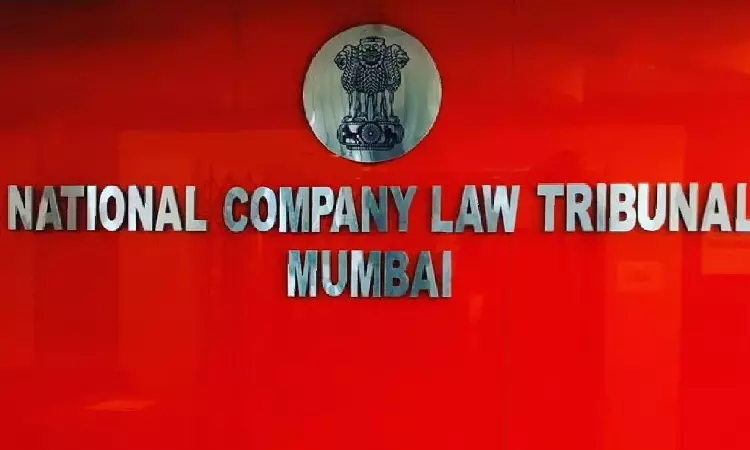COVID-Induced Financial Distress Or Inability To Pay Is Not Valid Defence U/S 7 IBC: NCLT Mumbai
Mohd Malik Chauhan
20 Oct 2025 2:10 PM IST
The National Company Law Tribunal (NCLT) Mumbai bench admitted a petition under section 7 of the Insolvency and Bankruptcy Code, 2016 (IBC) filed by Prudent ARC Limited (assignee of Central Bank of India) against RBEP Entertainment Pvt. Ltd. (formerly Reliance Big Entertainment Pvt. Ltd.). The Tribunal held that debt and default were duly established in the present case and the plea...
The National Company Law Tribunal (NCLT) Mumbai bench admitted a petition under section 7 of the Insolvency and Bankruptcy Code, 2016 (IBC) filed by Prudent ARC Limited (assignee of Central Bank of India) against RBEP Entertainment Pvt. Ltd. (formerly Reliance Big Entertainment Pvt. Ltd.).
The Tribunal held that debt and default were duly established in the present case and the plea of the corporate debtor that the COVID induced distress justified non-payment was rejected holding that inability to pay is not a valid defence under the IBC once the default is demonstrated.
A bench comprising Shri Ashish Kalia (Judicial Member) and Shri Sanjiv Dutt (Technical Member) held that “the Code marks a shift from 'inability to pay debt' to 'determination of default'. Once default is proved, the reason for non-payment — including financial distress or COVID-induced losses — is irrelevant.”
Background:
The Central Bank of India had provided Rs. 40 crore loan to the corporate debtor. The loan account was classified as Non-Performing Assets (NPA) and a loan recall notice was also issued demanding Rs. 44.75 crore including interest. The financial creditor also initiated recovery proceedings before the DRT before initiating proceedings under the IBC. The valuation report submitted by the financial creditor placed the fair value of the corporate debtor at ₹38.09 lakhs and the liquidation value at ₹30.47 lakhs which were below the debt amount.
The corporate debtor submitted that the date of default was incorrect as later the account was regularised. Application filed by a Deputy Manager was not backed by Board Resolution. Bank Statements were not certified as per law. Loan documents were adequately stamped under the Maharashtra Stamp Act, 1958. Lastly, it was submitted that the pandemic severely affected business of the corporate debtor and the debtor sought 36 months time to stabilise the operations.
Per contra, the Financial Creditor submitted that Power of Attorney duly authorised the Deputy Manager to initiate the proceedings. The date of default was duly corroborated by the CRILC report maintained by RBI. The plea regarding insufficient stamping is technical and therefore not relevant to proceedings under the IBC. Lastly, it was submitted that the debtor's subsequent attempts before the Tribunal for settlement demonstrated acknowledgement of debt and default.
Findings:
On authorisation, the Tribunal held that the Deputy Manager was duly authorised to file the application. It held that “The Power of Attorney grants sufficient authority to commence and prosecute any petition or legal proceeding… Hence, the application was filed under valid authorization.”
The tribunal rejected the contentions regarding certification of bank statements holding that the statements were duly certified under the Bankers Book Evidence Act. On insufficient stamping, the Tribunal held that the plea of insufficient stamping of loan documents is merely a technical ground on which an application under section 7 of the IBC cannot be rejected.
Citing the Supreme Court's judgment in Re: Interplay between Arbitration Agreements under the Arbitration and Conciliation Act, 1996 and the Indian Stamp Act, 1899, the Tribunal held that “the purpose of the Stamp Act is to protect the interests of revenue and not to arm litigants with a weapon of technicality by which they can delay the adjudication of the dispute. Insufficiently stamped documents suffer from only a technical deficiency which cannot be a ground to reject an application under Section 7 of the Code.”
The Tribunal further relied on Koncentric Investments Ltd. to hold that insufficient stamping does not affect the validity of the application under section 7 of the IBC if the debt and default are otherwise proved.
The Tribunal accepted 29 November 2019 as the correct date of default and observed that NPA classification was per RBI norms. The alleged regularisation was merely an internal reversal of unrealised interest entries and not an actual payment.
The Tribunal further relied on the NCLAT's judgment in Milind Kashiram Jadhav where it was held that "Once the Corporate Debtor defaulted and the loan accounts were classified as NPAs, a legal recourse was well within the Bank's statutory rights and pursuing resolution under the Code, which serves as a specialized law governing the resolution of distressed entities, was a legitimate course of action for the Bank.”
Rejecting the Corporate Debtor's plea for leniency, the Tribunal held that “the Code marks a shift from 'inability to pay debt' to 'determination of default'. Once default is proved, the reason for non-payment — including financial distress or COVID-induced losses — is irrelevant.”
Accordingly, the present application was allowed.
Case Title: PRUDENT ARC LIMITED Vs. RBEP ENTERTAINMENT PRIVATE LIMITED
Case Number: CP (IB) No.235/MB/2023
Order Date: 14/10/2025



